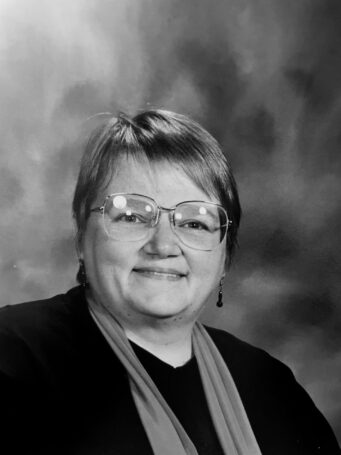July 18, 2023
Charmaine Letourneau revolutionized education for the deaf
When the late Charmaine Letourneau started at the Alberta School for the Deaf (ASD) as a student in 1956, students were not even permitted to speak using American Sign Language (ASL). Back then, ideas about educating deaf people included hearing aids, using their voices to speak and restrictions from sign language. Society’s beliefs at the time were more about requiring people with disabilities to conform to the standards of the abled rather than forming a consensus between the two. But, as ideas shifted over the years, the ASD and others began to open up to different perspectives on deaf education.
One of those people who would challenge educators and improve the quality of deaf education in Alberta was Charmaine Letourneau.

At the time Letourneau started as an educator at the ASD, many teachers were not deaf themselves. A close personal friend and long-time colleague, Kathy Dolby, recalls the impact and the difference that her teaching had on the students at ASD and her passionate fight for better support. “It was really bad at the beginning when I first started,” says Dolby, “she fought for everything — she fought for interpreters to be mandated throughout the country. She fought for deaf people all over Canada.”
Like many great teachers, Charmaine was a great storyteller. In a memorial video, Christine Spink- Mitchell spoke about their time together as students at the ASD. “It was here that I became attentive and enamoured with Charmaine’s ability to tell stories,” says Spink-Mitchell. “Every evening, I would ask, ‘Can you tell us another story?’”
Her ability to weave tales and engross people in stories followed her as she became a teacher. Dolby remembers when she first started at the ASD that many of the classes taught by hearing teachers were often noisy and disruptive. However, whenever she came by Letourneau’s room, all the students were enamoured, silently taking everything in.
For Letourneau being deaf was not a disadvantage. “I’m sure she’d say that being deaf was a blessing,” says Dolby. Letourneau had a big personality that shined not in spite of her deafness but in communion with it. “As soon as you saw Charmaine in the hallway and she had her hands on her hips, and she was staring down a student. They knew they were in trouble. So she was a taskmaster. And they all certainly looked up to her.”
In her lifetime, Letourneau worked tirelessly in many stations to further the quality of life for deaf people. She taught a 30-year tenure at the ASD and fought to keep the school open when the provincial government moved to close it.
She served for 12 years as President of the Canadian Cultural Society of the Deaf (CCSD) and helped create a college- level ASL/English interpreter program at MacEwan University.
She also helped create the first Canadian ASL dictionary and received many recognitions including the Canadian Association of the Deaf Citizen of the Year (1989), Outstanding Service awards to the CCSD (1984, 1986), “Global Woman of Vision” (2001), and was invested into the Order of Canada in 2000.
One of the many legacies that she has left is the Charmaine Letourneau Scholarship at Edmonton Community Foundation. These scholarships help students who are deaf or hard of hearing achieve their post-secondary goals. “Funding like this is very important to the deaf and hard-of-hearing students because many do not have equal opportunities to further their educations because of financial restraints,” says Amorena Bartlett, who received the award in 2014.
The importance of education for deaf people cannot be understated. “It’s absolutely everything,” says Dolby. This scholarship helps ensure that quality of life, community and the culture of Canadian deaf people can continue to grow. Regarding the scholarship, the endowment, and the many charitable donations it has received, Dolby says, “I’m hopeful that it will go on forever.”
The Charmaine Letourneau Scholarship is available every year, with an application deadline of August 31. Get more information and apply.
This story comes from the Summer 2023 edition of Legacy in Action.